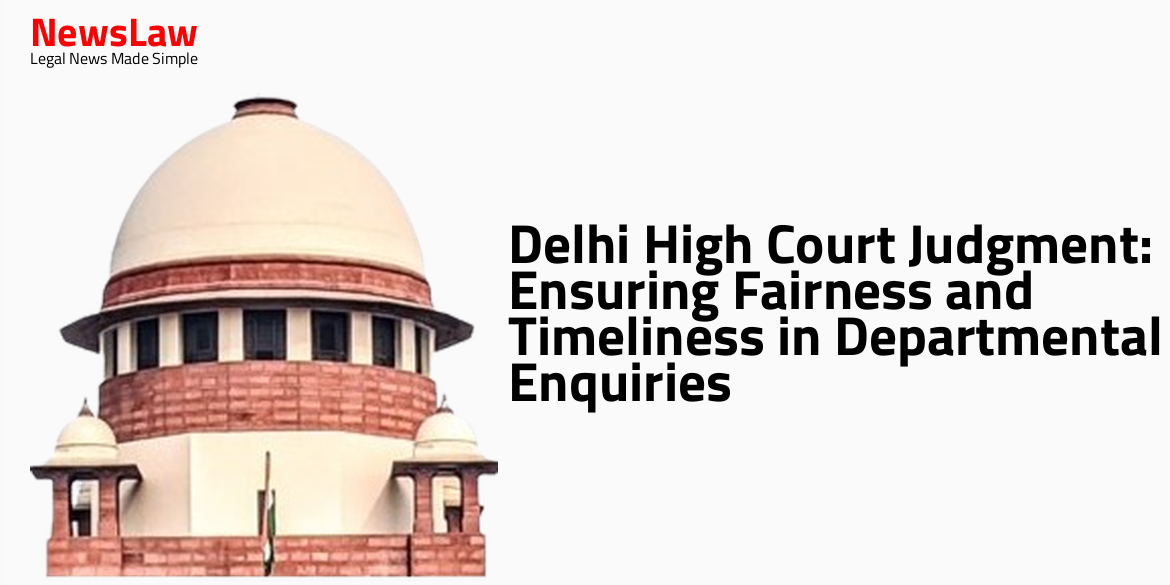Exploring the intricate legal landscape surrounding land use and the Kerala Land Reforms Act, a recent Supreme Court of India judgement delves into whether quarrying activities classify as ‘commercial sites’. The case, involving the interpretation of the Act’s provisions, raises crucial questions about equitable land distribution. Stay informed about the nuanced analysis provided by the court regarding this significant matter.
Facts
- The Appellant sought environmental clearance for his quarry
- District Expert Appraisal Committee (DEAC) recommended in his favor on 25.04.2017
- Petitioner No.1 and 2 filed a Writ Petition against the recommendation due to the land being a plantation site
- Concern that the land should not be used for purposes other than plantation
- Key consideration is the interpretation of ‘commercial site’ in Kerala Land Reforms Act
- The Writ Petition was heard by a Full Bench of the Kerala High Court consisting of three Judges.
- The majority opinion held that land used for quarrying does not fall under the definition of a ‘commercial site’.
Also Read: Supreme Court Ruling on Dowry Harassment and Suicide Case
Arguments
- Mr. K. V. Vishwanathan argued that a quarry is a commercial site exempted under Section 81 (1) (q) of the Act.
- Mr. Bechu Kurian contended that quarrying is a commercial activity done for profit.
- Reference was made to the statement of objects and reasons to emphasize protection of stakeholders’ interests.
- The meaning of ‘commercial activities’ and ‘business’ was discussed in relation to quarrying for profit.
- The expression ‘commercial site’ is a term of art and should be interpreted based on context.
- When there is doubt about the meaning of expressions in a statute, literal interpretation should be avoided in favor of purposive construction.
- The exemption provision should be narrowly construed to align with the principles of the Act being a beneficial legislation.
Also Read: Case of Technical Equipment Officer Appointment Criteria Dispute
Analysis
- The legislative intent of the Act is to impose a ceiling on land holdings and distribute excess land among landless people.
- Literal construction of the Act’s provisions should be avoided in favor of a purposeful interpretation.
- Quarries are considered commercial sites and exempted under the Act’s Section 81.
- The Act aims to provide land to landless individuals by redistributing excess land from those who possess more.
- The Court concluded that quarries fall under the category of ‘commercial site’ and are exempt from the Act.
- The Act’s provisions, especially those of a beneficial nature, should be construed with a purpose-oriented approach.
- Judges should consider the ‘colour’, the ‘content’, and the ‘context’ of statutes, as stated by Lord Wilberforce.
- Law should not be interpreted solely based on internal linguistic considerations but should also consider the facts surrounding the issue.
- Statutory construction principles for beneficial legislation include identifying the problem the statute aims to solve and interpreting it in a way that addresses the issue.
- Exclusionary provisions in beneficial legislation should be strictly construed to prevent evasion.
- Exceptions in beneficial legislations should be interpreted narrowly to align with the purpose of the legislation.
- Welfare statutes should receive a broad interpretation to fulfill their intended benefits.
- The dissenting opinion suggesting attributing the natural and original meaning to the expression ‘commercial site’ was disagreed with.
- The interpretation of the Act should promote the object of distributing land to the landless individuals in the State.
- Exemption clauses in beneficial legislations should be strictly construed.
- Courts should not make inroads by delving into etymological excursions when legislation is designed to provide relief against certain types of mischief.
- Semantic luxuries are deemed inappropriate in interpreting ‘bread and butter’ statutes.
- The court clarified that the judgement was based on factual determination only and did not involve any consideration of law.
- The court explicitly mentioned that the principles laid down in the judgement were not being adopted or ratified.
- It was emphasized that the judgement did not establish any binding legal precedent.
- The wider construction of the term ‘commercial site’ would go against the objective of the Act.
- The interpretation of Section 81 should support the Act’s aim of preventing concentration of large land holdings in the hands of a few individuals.
- No errors were found in the majority opinion of the Full Bench in the impugned judgment.
Also Read: Supreme Court Judgement on Transfer of Mining Environmental Clearances
Decision
- The RPC’s arguments were examined thoroughly.
- The RPC’s contentions were found to be unsubstantiated.
- The RPC’s request for relief was denied.
Case Title: K H NAZAR Vs. MATHEW K JACOB
Case Number: C.A. No.-007699-007700 / 2019



